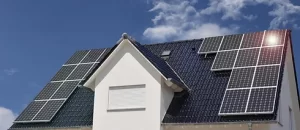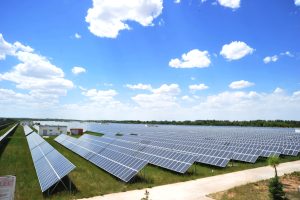Economic Analysis of Household Energy Storage Systems: Investment Returns and Cost-Effectiveness
As more homeowners consider installing home energy storage batteries and battery for home energy storage systems, evaluating the financial return becomes key. Household energy storage offers the flexibility to save on electricity bills and increase energy independence, but is the investment worth it? We’ll dive into the costs, savings, incentives, and potential benefits that can help inform a wise investment.
1. Initial Investment Costs: What Goes Into a Home Energy Storage System?
Setting up a home battery backup system involves several upfront costs. These include the purchase price of the energy storage battery, installation, and any necessary adjustments to integrate the system with an existing energy network. Battery sizes vary, but so does pricing. The cost per kilowatt-hour capacity for batteries has been steadily decreasing, though it still represents a significant investment. On average, homeowners can expect to pay between $5,000 to $15,000 for a typical residential energy storage system.
Is that sticker shock justified? Yes—especially when you consider the long-term energy independence and backup power benefits. Battery lifespans are getting longer, and the industry projects cost reductions as technology advances and economies of scale improve.

2. Operation and Maintenance Costs: How Much Do They Add Up?
Maintenance of a home energy storage battery is relatively low due to fewer moving parts, but monitoring system health is still necessary. Monitoring can often be handled through apps that provide real-time data on charge levels and energy consumption. While operating expenses are low, lithium-ion batteries do require occasional professional servicing, which typically costs around $100 annually. Compared to the operational costs of traditional power systems, battery storage systems are more straightforward and low-cost.
3. Savings on Electricity Bills: Immediate and Long-Term Benefits
A major advantage of home energy storage is the potential to save on utility costs by storing power when prices are low and using it when rates peak. Many households see monthly savings of 10–30% on their electricity bills by deploying energy strategically. For households with solar, combining storage with PV systems maximizes the use of solar energy, reducing reliance on the grid and lowering overall costs even further.
In areas with peak and off-peak pricing, energy storage batteries provide an immediate payoff by storing power during cheaper periods and discharging during high-rate hours. Over time, these savings can add up significantly.
4. Government Subsidies and Incentives: Boosting Your ROI
Various subsidies and incentives make the adoption of home battery backup systems more appealing. Many states and countries offer tax credits or rebates for solar energy and home battery systems, often covering 10–30% of the initial investment. Additionally, some regions allow battery owners to sell excess energy back to the grid, generating additional revenue. Programs and incentives are evolving, so homeowners should check the latest local and federal policies.
5. Are the Savings Worth It? Calculating ROI
The overall return on investment for a battery for home energy storage depends on several factors:
- Electricity Rates:Higher rates mean quicker savings.
- Battery Size and Usage Patterns:Larger batteries and consistent energy use can maximize returns.
- Solar Pairing:When paired with a PV system, battery storage can offer greater savings by capturing excess solar power.
On average, homeowners report an ROI timeframe of around 7–10 years, with a system lifespan that extends well beyond. For many, the potential savings combined with added resilience during power outages make it a sound investment.
Thinking About Future-Proofing?
While the ROI of a home energy storage battery is appealing, future-proofing with a system that can expand as needs grow is another advantage. As utility companies shift to time-based pricing, and as solar energy integration grows, households with energy storage will be able to adapt and maximize their savings.
Conclusion: How Huijue Group Can Help
If you’re considering a home battery backup investment, the Huijue Group offers state-of-the-art systems designed for durability, efficiency, and easy integration. Huijue’s home energy storage solutions are ideal for maximizing solar usage, storing energy during low-demand periods, and delivering backup power during outages—all with advanced monitoring for optimized performance. Explore Huijue Group’s products to see how they can help you achieve long-term savings and energy independence.
Contact us
- Email:[email protected]
- Tel: +86 13651638099
- Address: 333 Fengcun Road, Fengxian District, Shanghai
Get A Quote Now!
Related product links are available directly
Site storage products:Site storage products 归档 – (energystoragecontainer.com)
Lithium Battery:Lithium Battery 归档 – (energystoragecontainer.com)
Read more

Home Solar Panel Selection Guide: Match Your Energy Needs
When it comes to optimizing your energy efficiency, understanding how to effectively stack your solar battery storage system is key. With increasing energy demands and the push for sustainability, many homeowners are looking into home battery solutions.

How to Stack Home Energy Storage?
When it comes to optimizing your energy efficiency, understanding how to effectively stack your solar battery storage system is key. With increasing energy demands and the push for sustainability, many homeowners are looking into home battery solutions.

Solar Generator Kit: Creating a Solution for Home Energy Self-Sufficiency
As homeowners look to reduce dependence on traditional power grids, solar generator kits offer a practical and sustainable solution. These kits combine essential components like solar pv modules, energy storage batteries, and inverters, helping households tap into renewable energy sources and achieve self-sufficiency.

Economic Analysis of Household Energy Storage Systems: Investment Returns and Cost-Effectiveness
As more homeowners consider installing home energy storage batteries and battery for home energy storage systems, evaluating the financial return becomes key.
